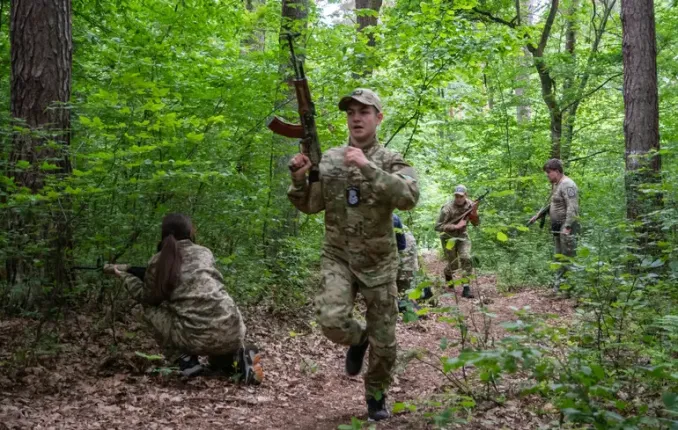Mandatory Military Training for Students: Ukraine’s Challenges and Future Perspectives in Modern Conditions

Amid ongoing military aggression and tangible threats that today resemble real, pressing challenges rather than hypothetical scenarios, Ukraine must seriously rethink its approaches to youth training. The ongoing conflict has reshaped the national landscape, where resistance to invasion has become an integral part of the country's defense strategy. To this end, the government is introducing compulsory military training for students, but this initiative has been met with mixed reactions—ranging from concerns over effectiveness to fears of formalism due to the lack of broad public discussion and systemic planning. Currently, in Kyiv and across various regions, numerous initiatives—courses, training programs, resistance centers—are actively preparing civilians for potential warfare scenarios. Additionally, preparations are underway to adapt modern military-patriotic courses, with the 'Defense of the Homeland' curriculum launched this year as a foundational element for future military instruction among youth. Starting from September 2024, second-year students from both public and private universities will be required to undertake basic military training courses. According to legislative documents, approximately 120,000 students will be covered, subjected to training, oath-taking, and receiving military specialties. However, many students and parents express concerns about this reform, focusing on risks of superficial implementation, as well as unresolved issues related to funding, personnel shortages, and organizational challenges. Military experts and civil activists emphasize the lack of a comprehensive strategic plan and adequate resource allocation for lectures and practical training. Without proper funding and a broad civic consensus, there is a risk that this measure could become merely symbolic, without meaningful contribution to Ukraine’s defense capacity. At the same time, experts highlight that the primary goal of mandatory military training should be to demystify military life, familiarize young people with basic military culture, and prepare them for possible mobilization or national defense if emergency arises. It is also argued that universal compulsory training might not be the best approach—more flexible options like short annual refresher courses or specialized training for different military roles could be more effective. Training should focus on developing qualified instructors capable of adapting to changing technological and strategic realities. Organizational and financial issues represent only part of the systemic problems that must be addressed for successful implementation. Public awareness campaigns and engagement with civil society are crucial to avoid misunderstandings, reduce societal tension, and foster positive attitudes toward military training as a vital part of national security. The country needs a unified and efficient system of youth military education to build a resilient and ready defense sector for the future.

